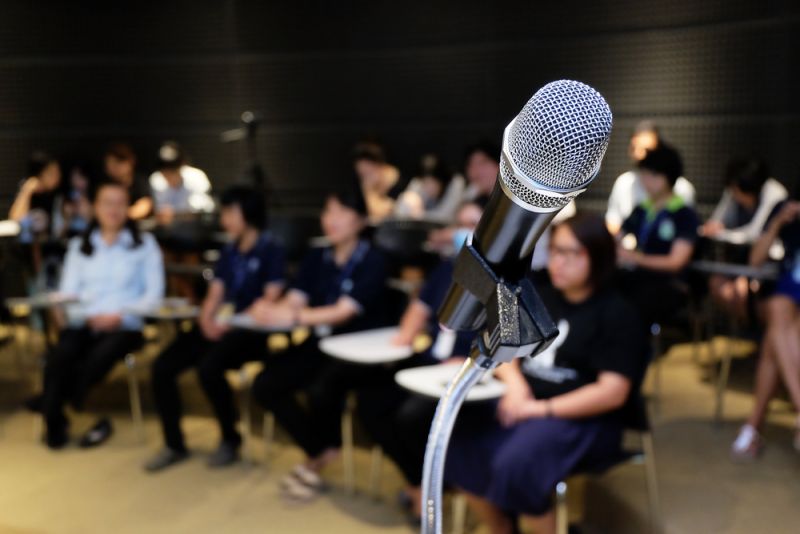Parents at school board meetings were subject to FBI intimidation, witnesses say

 null / D.Somsup/Shutterstock
null / D.Somsup/Shutterstock Washington D.C., Mar 24, 2023 / 17:15 pm (CNA).
House Republicans held a hearing Thursday featuring testimony from parents who said their decision to speak up at school board meetings resulted in a Department of Justice effort to intimidate and silence them.
The witnesses offered their testimony at the Subcommittee on the Constitution and Limited Government’s first hearing on “Free Speech: The Biden Administration’s Chilling of Parents’ Fundamental Rights.”
Much of the discussion surrounded the DOJ’s October 2021 memorandum that Attorney General Merrick Garland issued to address an alleged “spike in harassment, intimidation, and threats of violence at school board meetings.”
The memo called for federal intervention and tasked the FBI with investigating parents to “facilitate the discussion of strategies for addressing threats” against education officials.
Nicole Neily, the founder of Parents Defending Education, told the committee her office worked with parents who became worried about speaking against their school boards following the memo.
“Unsurprisingly, parents were frightened by this escalation,” Neily said. “In the days following the release of [the] DOJ’s memo, we fielded dozens of requests from concerned parents who worried whether they should continue their advocacy work or simply stay home, fearing a knock at the door from federal law enforcement.”
Rep. Mike Johnson, R-Louisiana, who chairs the subcommittee, said during his opening speech that the memo was used to “target concerned parents” and “to intimidate these parents into silence by sicking federal law enforcement on them.”
The congressman alleged that the “ambiguity” of the document helped the administration “silence the critics of its radical education policies.”
Tiffany Justice, the founder of the parental rights organization Moms for Liberty, agreed with Johnson’s assessment and said the FBI “made phone calls to parents” who confronted school board officials.
She cited one mother affiliated with her organization who was allegedly questioned by the FBI about whether she owned guns or had mental health problems because she “disagreed with her school board.”
According to Justice, the memo “sent shockwaves across this country that we still feel today.” She said activists in her organization were frequently mistreated.
“We attended school board meetings, often facing unjust treatment,” Justice said. “Parents were expelled, their mics were cut off, and many were prevented from speaking.”
Several Republican lawmakers expressed empathy with the parents, including Rep. Wesley Hunt, R-Texas, who noted that the FBI investigations failed to find any criminal activity.
“According to the FBI, not one of these school-board-related investigations resulted in federal arrests or charges,” Hunt said. “Not a single one.”
Democratic members of the subcommittee disputed some of the testimony and the statements made by Republican subcommittee members.
Rep. Mary Gay Scanlon, D-Pennsylvania, who serves as the subcommittee’s ranking member, said the memo was focused on potential criminal activity, such as threats of violence.
“Any reasonable person can see the difference between threats of political violence and legitimate political discourse,” Scanlon said. “Unfortunately, this hearing is based upon [a] false narrative … designed to promote chaos and division in our communities.”
Scanlon claimed the “real First Amendment threat” comes from “extremists [who] are imposing their beliefs on all students and parents through library book bans, bans on certain subjects in the public school curricula, and censorship of educators all to the detriment of students’ learning.”
PEN America Managing Director Nadine Johnson also testified before the committee about states and school districts that have restricted access to controversial books in school libraries.
“In this new era of censorship, we have tracked 303 bills, which we term educational gag orders, in 44 states,” Johnson said. “These government restrictions forbid the teaching of specific curricula or ban certain concepts from the classroom.”
Several Republican committee members, including Rep. Chip Roy, R-Texas, countered that they believe the books being removed from school libraries are inappropriate for children.
Roy referred to the book “Gender Queer,” which he said contained “graphic pictures that are being put in front of our kids in schools,” such as “two men engaged in a sexual position” and “two men engaged in oral sex.”
Rep. Mike Johnson indicated there would be additional hearings from the subcommittee to address these matters further.




